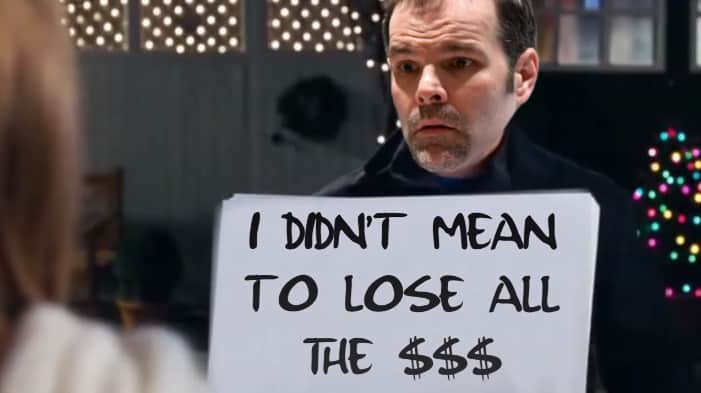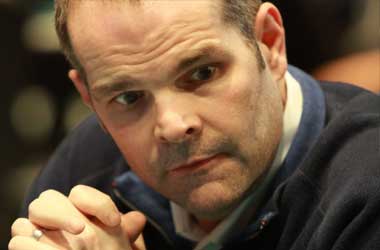Full Tilt Poker Scandal Howard
Full Tilt Poker’s player pool was fully integrated into PokerStars on May 17 and the poker platform was officially retired. In the wake of the final closure of what was once one of the largest online poker sites in the world Howard Lederer, a former board member of the now defunct business, has opted to put out a statement through Daniel Negreanu’s poker blog.
Jesse May says there are still too many unanswered questions about Full Tilt Poker. “Obviously he is entitled to attend but I wouldn’t welcome him. Personally, people like him, and especially Howard Lederer, have disgraced themselves and I'm not personally satisfied with the answers they've given about what happened at Full Tilt. The short answer is that both Howard Lederer and Chris Ferguson were managing officers and the public faces of the once-popular online card room Full Tilt Poker. In September of 2011, Full Tilt was sued in federal court over allegations that it was a Ponzi scheme. Prosecutors alleged that both Lederer and Ferguson collected more than $40,000,000 each over a four-year period from unscrupulous and illegal.
Lederer has been a persona non grata in the poker world after the fiasco that followed the U.S. Department of Justice’s actions on April 15, 2011. Players with money in accounts on Full Tilt Poker looked as if they might not ever retrieve their funds after poker’s Black Friday as a result of the site’s failure to segregate player funds from the money used to operate the business. Players only received any form of relief when PokerStars announced that they would buy the company and pay out player’s balances.
Negreanu posted Lederer’s statement and also gave his own commentary, saying it is, “the kind of apology people would have liked to read five years ago.” Lederer’s full statement can be found below. For more of Negreanu’s thoughts on it, check out his blog post which can be found here.
___________________________________________________________________
I am writing to apologize to everyone in the poker community, especially to all the players who had money on Full Tilt Poker on April 15, 2011. When Full Tilt Poker closed in 2011, there was a shortfall in funds, a distressed sale to recover those funds, and a long delay in repaying players. Throughout this period, there was little explanation for the delay, and no apology. Players felt lied to. They trusted the site, and they trusted me, and I didn’t live up to that trust.
I take full responsibility for Full Tilt’s failure to protect player deposits leading up to Black Friday. The shortfall in player deposits should never have happened. I should have provided better oversight or made sure that responsible others provided that oversight. I was a founder in the company that launched Full Tilt, and I became the face of the company’s management in the poker community. Many of our players played on the site because they trusted me.
Even though I was no longer overseeing day to day operations, my inattention in the two years leading up to Black Friday imperiled players’ deposits. My involvement in Full Tilt from 2003-2008 put me in a unique position of trust—a trust that I disappointed by failing to ensure that Full Tilt was properly governed when I stepped away in 2008. My failure to make sure proper oversight was in place when I left resulted in the situation that began to unfold on Black Friday. Players were not able to get their money back for a minimum of a year and a half, and, for many, it has been much longer. I’ve been a poker player my entire adult life. I know the importance of having access to one’s bankroll. The lost opportunity, frustration, and anxiety many of FTP’s customers experienced in the intervening years is unacceptable. I cannot be sorry enough for what happened.

During Full Tilt’s rise, I received a lot of praise. I couldn’t see it at the time, but I let the headlines change me. In the first couple of years after Black Friday I made lots of excuses, to my friends, my family and myself, for why I wasn’t the bad guy or big-headed or wrong. In the months immediately following the crisis, I focused a lot of energy on trying to refute allegations that were factually untrue. I convinced myself that I was a victim of circumstance and that criticism was being unfairly directed toward me instead of others. I was missing the bigger picture.
At a wedding in the fall of 2014, I was sitting with a friend, talking about Full Tilt. I was grumbling about how unfair my lot in life had become. My friend didn’t let me off the hook. I’m paraphrasing here, but he said, “Howard, it doesn’t matter whether you knew about the shortfall or what you did to help players get paid. These players feel like you lied to them. You were the face of the company in the poker community. Thousands of players played on the site because they trusted you. Many pros represented the site because they thought you were in control. And you happily accepted the accolades while falling short of their trust.”

At the time, my friend’s response felt like a slap in the face, but it is clear to me now that it was fair. An apology is not enough, but it is what I am able to offer to the poker community in the wake of a travesty that I should not have allowed to happen. I am sorry.
_____________________________________________________________
Following Black Friday Lederer settled with the U.S. Department of Justice. In exchange for the opportunity to admit to no wrongdoing in the civil complaint that stemmed from Full Tilt’s failures Lederer forfeited at least $2.5 million in cash and assets, including several pieces of real estate property and vehicles. He also handed over the contents of a bank account, although the settlement didn’t specify the amount of the funds in that account. Lederer was paid at least $42.5 million by Full Tilt over the course of his involvement with the company, which he helped in founding.
With those forfeitures in mind and this apology made, has Lederer even begun to mend the bridges burned by the Full Tilt fiasco and his failure to take responsibility for the site’s mismanagement?
“The choice to accept his apology is a personal one,” says Negreanu. “For what its worth, I personally believe the apology to be genuine.”

Genuine or not, Lederer likely has a long way to go before he is able to play in poker’s biggest events without facing hostility and contempt.

